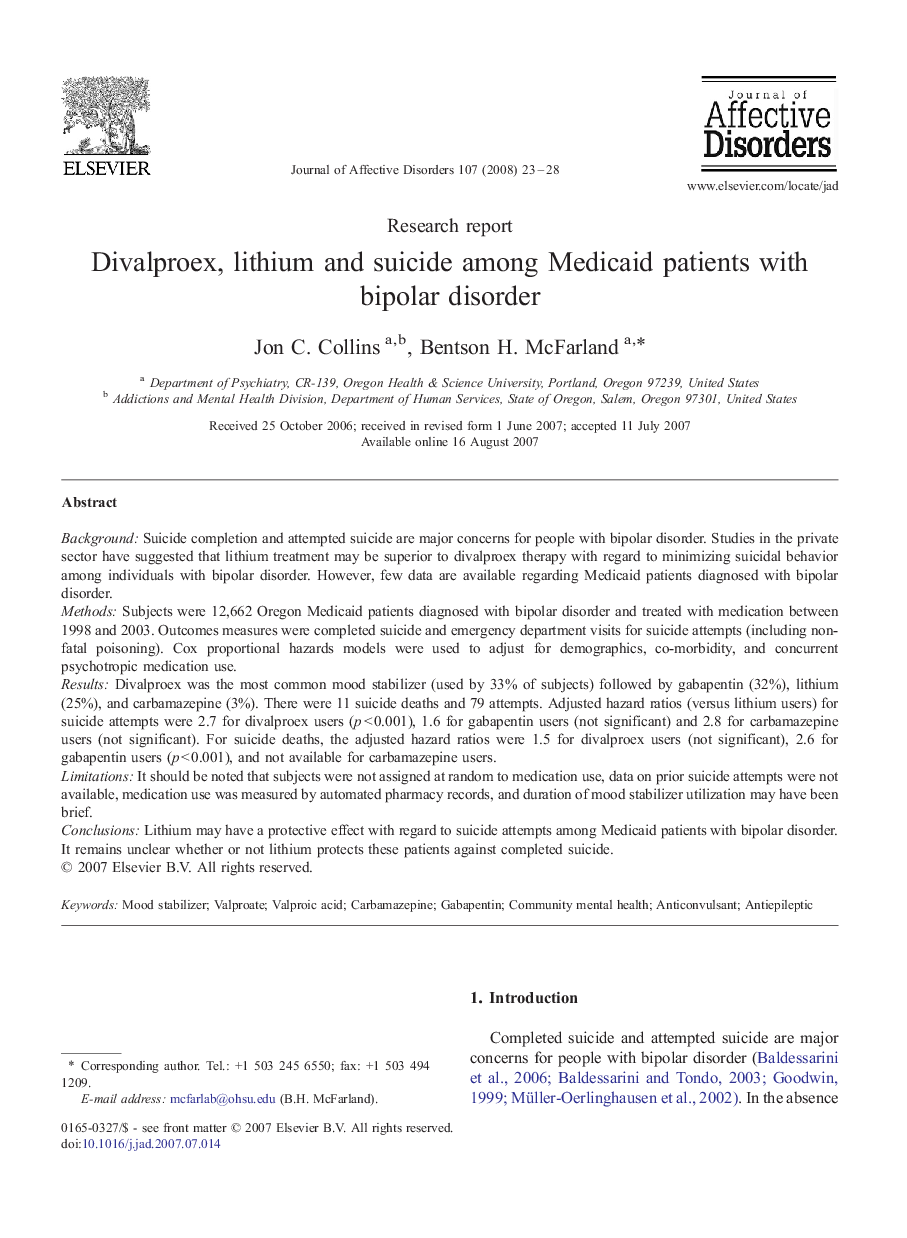| Article ID | Journal | Published Year | Pages | File Type |
|---|---|---|---|---|
| 6236821 | Journal of Affective Disorders | 2008 | 6 Pages |
BackgroundSuicide completion and attempted suicide are major concerns for people with bipolar disorder. Studies in the private sector have suggested that lithium treatment may be superior to divalproex therapy with regard to minimizing suicidal behavior among individuals with bipolar disorder. However, few data are available regarding Medicaid patients diagnosed with bipolar disorder.MethodsSubjects were 12,662 Oregon Medicaid patients diagnosed with bipolar disorder and treated with medication between 1998 and 2003. Outcomes measures were completed suicide and emergency department visits for suicide attempts (including non-fatal poisoning). Cox proportional hazards models were used to adjust for demographics, co-morbidity, and concurrent psychotropic medication use.ResultsDivalproex was the most common mood stabilizer (used by 33% of subjects) followed by gabapentin (32%), lithium (25%), and carbamazepine (3%). There were 11 suicide deaths and 79 attempts. Adjusted hazard ratios (versus lithium users) for suicide attempts were 2.7 for divalproex users (p < 0.001), 1.6 for gabapentin users (not significant) and 2.8 for carbamazepine users (not significant). For suicide deaths, the adjusted hazard ratios were 1.5 for divalproex users (not significant), 2.6 for gabapentin users (p < 0.001), and not available for carbamazepine users.LimitationsIt should be noted that subjects were not assigned at random to medication use, data on prior suicide attempts were not available, medication use was measured by automated pharmacy records, and duration of mood stabilizer utilization may have been brief.ConclusionsLithium may have a protective effect with regard to suicide attempts among Medicaid patients with bipolar disorder. It remains unclear whether or not lithium protects these patients against completed suicide.
